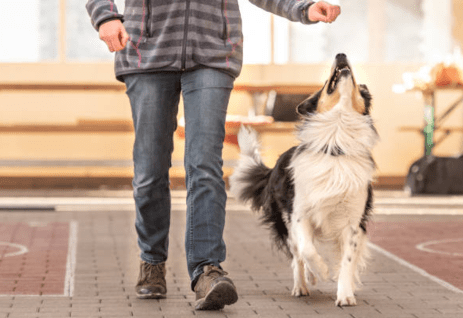
In the heart of every dog lies the potential for boundless love, loyalty, and friendship. Consulting with a dog bite lawyer in Savannah can be crucial for pet owners to understand their responsibilities and legal standpoints. Yet, as pet owners, we must acknowledge the responsibility that comes with this rewarding relationship—an obligation not just to our four-legged companions but to the community at large.
Savannah, with its charming parks and vibrant community life, is no stranger to the joys of pet ownership. However, it also represents a microcosm where the risks of dog bites and the ensuing legal ramifications can surface. Thus, preventing dog bites through responsible pet ownership is paramount.
The Stakes Are High
The implications of a dog bite are significant, involving emotional, health, and legal issues. For pet owners, consequences may include fines, legal actions, and possibly losing their pet. Such consequences underscore the importance of responsible pet ownership and training to prevent such incidents.
Thus, prevention is crucial. Education on responsible pet ownership and understanding dog behavior is essential to reduce these risks. Awareness is the first step towards prevention.
Training and Socialization: The Foundation of Prevention
Training and socializing your dog are the first and perhaps most significant steps in preventing dog bites. Proper training instills discipline and obedience, while socialization—from puppyhood onwards—exposes your dog to various people, environments, and other animals, reducing fear and aggression. Early socialization is vital; it helps puppies grow into well-adjusted adults, minimizing the risk of unpredictable behavior.
Focus on positive reinforcement techniques during training sessions. Rewarding good behavior with treats, praise, or playtime creates a learning environment shaped by mutual trust rather than fear. Punishment and negative reinforcement can lead to defensive behaviors and potential aggression.
Recognizing Canine Body Language
Understanding canine body language is another crucial component. Dogs communicate discomfort, fear, and aggression through body postures, ear positions, and tail movements. Recognizing these signs allows owners to intervene and remove their dogs from stressful circumstances before a bite occurs.
For example, a dog with a stiff body, flattened ears, and a tucked tail expresses fear, which could escalate to biting if not addressed. Conversely, a relaxed posture and wagging tail generally signify contentment. Learning these cues helps prevent situations that might trigger a defensive response.
Safe Environments, Responsible Ownership
Creating a safe environment for your dog and the people around them is a further step toward prevention. This means securing your yard with proper fencing, using leashes in public spaces, and never leaving dogs unsupervised with young children. Such precautions ensure your dog feels safe and protected, reducing the likelihood of bites born out of fear or territorial instincts.
Additionally, consider spaying or neutering your dog. Studies have shown that spayed and neutered pets are less likely to bite. They’re also generally healthier and less prone to certain behaviors and diseases.
Legal Implications and Community Responsibility
Ignoring the potential for dog bites isn’t just poor pet ownership—it can have significant legal implications. Like many communities, Savannah has laws to protect its citizens from dog bites. Owners found negligent can face fines, lawsuits, and, in severe cases, criminal charges. More heartbreakingly, it can result in the dog being seized and euthanized.
Thus, beyond the personal responsibility of preventing dog bites, there’s a communal obligation to uphold the safety and well-being of our neighborhood. Being a responsible dog owner doesn’t just protect your pet but also respects the rights and safety of your fellow citizens. Consulting with a dog bite lawyer in Savannah can ensure all parties understand their rights and responsibilities if an incident occurs.
Conclusion
The bond between a dog and its owner is one of life’s most fulfilling relationships. Yet, with this bond comes a duty to ensure our pets don’t become a liability or danger to others. Proper training, understanding canine body language, creating safe environments, and abiding by local laws can significantly reduce the risk of dog bites.
Being a responsible pet owner means loving your dog enough to invest in training, socialization, and well-being. It’s about protecting not just them but also the community around us. By taking these steps, we honor our canine companions’ loyalty and joy in our lives, ensuring they remain our beloved pets—and not subjects of preventable legal actions.



